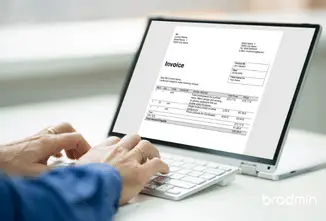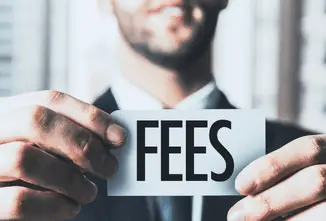Yes late payments fees are legal in the UK. As a business owner, you are allowed to charge late payment fees, and not only that, you are protected by the law to do so. Now, even though this is allowed, you can either choose to, or not, and according to the UK gov. the charges are usually calculated in consideration of the Statutory Interest – Explained below.
Is it legal to charge the late payment fees?
Yes. It is legal to charge late payment fees, but, as mentioned above, you can only do so if the contract you signed with your client allows this. However, there are some laws per state that each business owner is entitled to charge as late payment fees.
What is the late payment law in England?
This is a commonly asked question. Everything concerning late payments falls under the 1998 Act of The Late Payment of Commercial Debts. This came into force in November of that year, and since then, it has been slightly amended to fall into the European Directive, although it remains the same.
One essential point about this law is that it applies to commercial debt, although it is not exclusive to Limited Companies. Sole traders, freelancers, and other entrepreneurs can use the law. This law has two primary purposes; the first is to compensate the creditors for any late payments of debts, and the second is to deter any late payments.
It applies to commercially supplied goods and services only, where the terms and conditions do not have an interest provision. So, in brief, the law states that invoices that are not paid on time entitles the business owner to claim interest compensation.
Additionally, if the invoice was placed after 16th March 2013 you can also claim reasonable costs for collecting the debt. Interest, in this case, can be claimed at a rate of 8% above the Bank of England’s base lending rate, plus a compensation rate of between £40 and £100 for each invoice.
How many days until payment is considered late?
Each business has its payment terms and individual collection processes. But generally, if a client does not pay within 30 days of receiving the invoice, this is officially a late payment.
On the other hand, a business can set up its payment terms, including discounts for early payments and upfront payments. It has now become a standard business practice to give shorter payment terms. A business may give their clients around two weeks to pay the invoices, of which they will receive a discount for doing so.
So, how many days until payment is considered late will depend entirely on your own payment terms.
Who is allowed to claim interest?
As per the Act, you can claim interest on late payments in case there was a contract that;
- Was made for the supply of goods and services
- Was business to business, including any with public authorities.
- Did not have a clause that gave a substantial alternative remedy for any late payments.
Should I charge my clients the late payment fees?
This is one of the toughest decisions that a business can make. In most cases, they do not charge their customers due to the consequences of doing so.
It is also quite risky to charge late interest fees to their clients as it means that they are likely to lose them. Small business owners and freelancers are especially vulnerable in this regard because running a business with multiple late invoices will impact their cash flows negatively and make it difficult to run their operations.
So, this is purely a business decision and must be made by the owners, as they must weigh the options of whether or not they are willing to lose the client. Alternatively, if your business has monopoly in the market, it may be a good idea to charge the interest fee as your clients are likely to stick with you no matter what happens.
What is reasonable to charge as late payment fee?
Business owners do not have an option, as they must charge a monthly finance charge or a flat rate, which is usually a percentage rate of the amount overdue. Most companies will typically charge between 1% and 1.5% late fees.
To calculate the late fee, you will first have to decide on your annual interest rate. After you have identified the yearly interest rate, then you should divide that by 12.
The number you get is your monthly rate. This should then be multiplied by the due amount to get a monthly late fee charge.
Here’s an example;
Let’s say that you usually charge around 12% interest per annum, then a contract of approximately £12,000 becomes overdue for more than 30 days.
To figure out how much you would charge as finance charge, you would have to multiply the outstanding amount of £12,000 with the monthly interest rate, which is 1%, and arrive at a figure of £120.
Therefore, the new balance for this contract would be £12,120 and will keep increasing with £120 each month.
When can this Interest be claimed?
The interest starts running after the agreed period in lieu of the payment period has lapsed. This is usually 30 days from;
- The date when goods/services were supplied.
- The date on the invoice or
- The end of the checked goods procedures.
How can I ask my client for late payment fees in a professional manner?
Asking for this payment can be a little bit hard, especially for small businesses. It would help if you used the most polite language, but you should also try to be as direct as possible.
Give the client some benefit of the doubt, first of all, to ensure that they actually received the invoice in question and at the right time.
Small businesses are required to follow up on email by requesting payment, and if the client does not pay up, you could take legal action.
Asking professionally
What can I do if my customer is late in paying an Invoice?
The first thing you do is contact your customer and ensure that you do this reasonably and friendly, as you do not wish to lose this client. Then, both of you should develop an amicable way of resolving the matter before it escalates.
This initial contact should take the form of letters, emails, and phone calls. In case there is no success in the first attempt. You can move on to enlist the help of reputable and professional debt collection agencies who have a thorough knowledge of debt collection and who can help you come to an amicable understanding of how this process will proceed.
At this step, the professionalism and quality of service for your chosen agency is of great importance.
What does an LPD – Late Payment Demand and LBA – Letter before Action mean?
LBA – this is a letter usually written by your solicitor or collection agency. It is sent to the debtor to inform them of a forthcoming court action if the payment is not received in the next seven days.
Usually, it is a serious step for securing payment from the client, and if they do not follow the instructions, then legal proceedings can begin.
LPD – this is an alternative to the LBA. It allows you to make an interest claim, compensation, and any other reasonable costs you may have accrued while collecting on the late payment.
The process of debt collection can be quite complicated for anyone who has also to run their business at the same time. You must deal with other customers and clients.
After making the initial contact, you could offer your debtor a chance to pay up the debt they owe you, and the best course of action is to recruit the services of a debt collection agency that will get things moving quickly and perhaps give you some good results in the end.
Consider cutting them off
If they do not meet the payment promise they made over the phone, and you have been chasing this payment for a while now, you must be willing to consider cutting ties with this particular client.
If, however, you have already started new projects with them, you should consider stopping these projects even before they are finished and ask them first to pay up the previous invoice.
This will probably motivate them to pay quickly if they rely on you for the current and future projects. Cutting them off will also protect you from all future losses if you can no longer trust this client.
But, be sure to be courteous and firm with them when you let them know that you will be refusing any future work from them.
Look for a collections agency
Once all the above-listed attempts have failed and you cannot get paid for the overdue invoice, it might be time to escalate this matter further by hiring a collections agency to secure the payment.
This is an expensive option as the agency is likely to take around 50% of the collected amount, but recouping your money, regardless of how little it will be, is better than having nothing at all.
Be sure to research the best and most reputable agencies to give you the best results in this area.
Conclusion
In conclusion, it is safe to say that late payment fees are legal, and as a business entity, you must decide whether or not you will charge these fees.
The main problem with unpaid invoices is that they block your progress as a business due to the fact that this is money tied up with a client. If threatening them with extra charges will help them pay up fast, then this might be the only option for you.
But, you must have noted from the information above that you cannot charge late payment fees if they had not been included in the contract signed by the client.
Therefore, whenever you are preparing any documentation representing a transaction between you and the client, the information on how much and when you will be charging the interest on late payment MUST be clearly included and understood by both parties.
2 Comments
Comments are closed.





![Apology letter for late payment to supplier [with examples] 5 apology letter for late payment to supplier](https://brodmin.com/wp-content/uploads/2021/09/apology-letter-for-late-payment-to-supplier.webp)
![Invoice payment terms - UK edition 2022 [+ Net calculator] 6 Invoice Payment Terms UK Edition 2021](https://brodmin.com/wp-content/uploads/2021/09/Invoice-Payment-Terms-UK-Edition-2021.webp)






Does the statutory late payment act allow a private individual to claim interest on a debt of £500 that took over a year to refund. This over- charge was as result of missreading my electric meter.
Hi John,
I think that would depend on the circumstances (sorry). I theory, yes, you can make a claim on the money that you are owed. It sounds like that you only asked for a refund (from an overbilling) – so claiming interest is not as clear cut as other B2B or B2C situations.
I am not a legal person – in your situation I would ask in forums for advice – like this one. conversation.which.co.uk/topic/money/
Or you could ask Citizens Advice Bureau?
Would be interesting to find out if you can claim interest from your supplier for taking a year to give you your money back. We’d appreciate if you keep us updated or let us know if we can assist you in any way (not in legal matters).